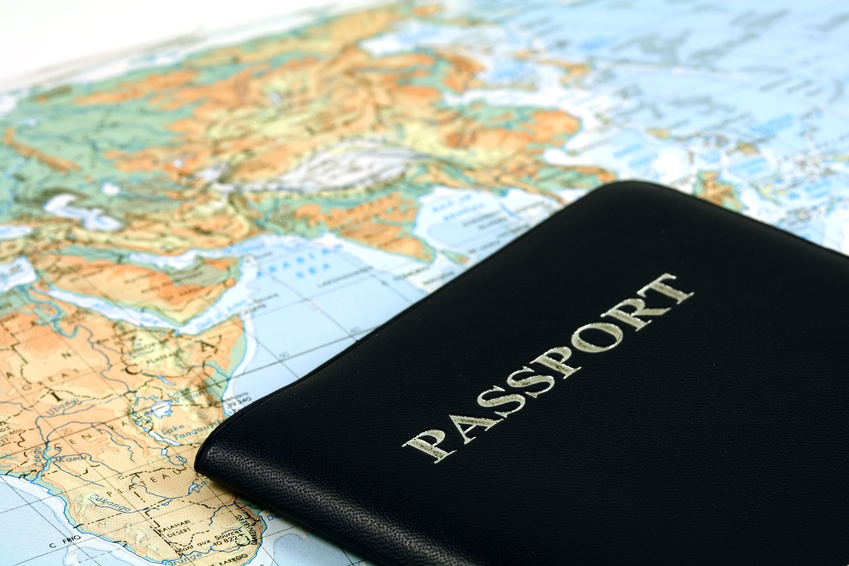Many visitors to the Cape and Islands are from “across the pond” or outside of the US. How do you handle international payments, including currency conversions, quickly and safely? Here are a few tips to help make the experience a positive one for all parties involved.
Handling Inquiries
Granted, communicating with vacationers from another country can be more difficult, but we always recommend that property owners and managers have at least one phone conversation with potential renters prior to committing. Not only is screening your tenants a best business practice in all of your rental transactions, speaking directly with one another affords some peace of mind to both parties about the transaction. Be sure that communications are clear, for you will be far less likely to set the wrong expectation or have misunderstandings after the vacationer arrives.
Payment Methods
Online Payment Services

More secure now than ever, online payment services like Transferwise and PayPal allow vacationers to make payments internationally. With PayPal, your renters don’t even need a PayPal account themselves to send you money. All they need is your email address. If they do have a PayPal account and have it linked to their bank account or can pay using their PayPal balance, there are no domestic transaction fees. But there will likely be fees for transactions involving a currency exchange and/or to receive payments from another country. Read more about online payment options.
Bank Transfer
Another secure payment option is to allow your tenants to set up a bank transfer or a wire transfer through an accredited bank. In both cases, you provide the vacationer with your bank’s routing and account number, or in some cases, a SWIFT or IBAN number, and the vacationer arranges the transfer through their bank. Despite concerns to the contrary, these wire transfers are very secure. Always check with your bank first, though, to be sure they accept bank-to-bank money transfers (some smaller, local banks and credit unions do not), and direct any questions about these types of transactions directly to them.
Check

If the booking is not last-minute, traditional payment via personal or bank check is still an option, especially for vacationers from Canada. The key is to allow enough time between receipt of the check and the day the rental period begins for the funds to clear your bank. Sometimes, homeowners require checks to be sent via a global parcel shipping service instead of the postal service. This can prevent late payment due to issues with snail mail (case in point, 2012’s Canada Postal strike).
Considerations
No matter how you choose to accept payments, it is wise to create your own business policy for international tenants and make it known to them as soon as they inquire. You’ll want them to know, for example, if:
- it is their responsibility to cover currency conversion rates and foreign transaction fees,
- you pay the fees but factor them into the payment schedule, or
- you eat the fees completely.
Be sure to outline any specific, additional fees in the payment schedule of your lease, including any amounts to cover currency conversion, if appropriate. Click here for other payment schedule considerations.
How do you handle international vacationers who inquire about and rent your home?








[…] to US dollars. Again, check with PayPal for the particulars. Also, read our other blog posts about International Bookings and Handling Payments from […]
[…] than from any other foreign country. In a previous blog post, we detailed the preferred methods of payment for international guests, including PayPal and bank transfers. But here’s some advice specifically geared to Canadian […]
Great topic! I’ve been exploring this a bit on how to handle our Canadian renters. Our bank tells me that the best option is to have them send a Bank Draft or Money Order drawn in US Dollars. Fee for the renter is small (usually under $10 Canadian) and no fee for me to deposit on this end! Has anyone had any issues with this approach?
Hi Tom. Your bank has made an excellent suggestion. The only thing I would add is to be sure to have your Canadian renters send you their payment by courier as opposed to using the postal service. A couple of years ago, Canada Postal Service went on strike and many a homeowner and vacationer were thrown into a panic. Not only does a courier give both parties a tracking number, the vacationer has the option to purchase insurance to protect the value of the shipment in the event it gets lost by the courier. In any event, always request International guests use a courier service when the rental period will begin within a month or less from the time the guest is booking the home. Best, Shannon
I had Canadian guests last year and the currency issue turned out to be a big deal; they paid the exact amount but in Canadian dollars and were upset when I pointed out the shortfall in US currency; so I added the shortfall to the second part of the rental bill and again they paid in Canadian dollars. I had to forfeit their security deposit to make it up. Very unpleasant business.
Hi Herman. Yes, unfortunately, currency exchanges and foreign transaction fees can be a headache but you don’t have to completely cut yourself off to this market. Many of our homeowners find PayPal works really well for arranging international payments. You can learn more about it here: https://www.paypal.com/webapps/mpp/paypal-fees
Best, Shannon
PayPal is telling us now that the fee is 3.9 percent plus the $0.30 per-transaction fee.
Thank you, Kathy! I’ve updated the post with the new % amount. Best, Shannon
Thanks for covering this issue. We had renters from Canada last year and payment proved to be a huge hassle. I was dismayed to discover that doing business with Canada though banks is not easy. We ate the fees last year, but I have our Paypal account ready now!
Thanks for your comment, Alice. So glad PayPal works for you!